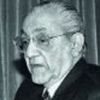Presidential system poses a danger to democracy itself

It is fundamentally most unwise, and perhaps even dangerous, to seek legal or, worse still, constitutional cures for political diseases. Political instability can be cured only by seeking political cures.
The framers of India’s Constitution and its Constituent Assembly deliberately and wisely rejected pleas by an articulate minority for a presidential system. Yet, a decade and a half after the Indian Constitution came into force, many made a powerful plea for a presidential system.
The dangers that the presidential system poses to democracy itself was amply demonstrated when Prime Minister Indira Gandhi proposed the presidential system during the Emergency in 1975. Having put political opponents behind bars, imposed pre-censorship on the press and banned public meetings, she planned another Constituent Assembly to draft a new constitution installing a presidential system — no doubt, with herself as President and a pliable legislature to do her bidding.
In a democracy, the President might well belong to a party that is opposed by the party in the majority in the legislature and determined to obstruct the President’s legislative proposals. In the parliamentary system, the executive flows from the legislature. The Cabinet is, in reality, a committee of the legislature. Its members have to be members of the legislature and can be thrown out of office by a vote of no-confidence.
But you cannot possibly have the legislature nominated by the executive. Which is why in the presidential system in any democracy, the legislature is elected separately from an elected President. The result is that while in the parliamentary system the Opposition can conspire to overthrow the Prime Minister, in a presidential system they can, by similar techniques, render the President impotent by refusing to vote for funds. If no finances are allocated, the President remains in office but is impotent to act because he has no money. Newt Gingrich illustrated this in President Bill Clinton’s time. American embassies and consulates had to shut shop. This precedent has been followed more than once since then.
In his classic work Parliament, Ivor Jennings summed up the Cabinet system in Britain in these words: “The British government is one of the strongest, if not the strongest, in the world. It normally has at its command a stable parliamentary majority whose support is based on loyalty to the personnel and acceptance of the principles of the party from which the government is drawn, upon dislike of the alternative which would be drawn from the Opposition, and upon the big stick of dissolution which the government can, if need be, wield.” Either branch of the latter alternative is, normally, worse than the former alternative.
Advocates of the presidential system fall back, in desperation, on the French and Sri Lanka models. Neither is a shining success. Sri Lanka has seen plans for a non-executive President; a yearning for the parliamentary system.
As indicated earlier, political diseases can only be cured by political reforms. When the party structure is weak the leadership is rapacious, corrupt and authoritarian. It is the people who must be educated about their rights. They alone can reject political wrongs. To install a presidential system is to go from the frying pan into the fire. People have tried all kinds of legal measures such as anti-defection laws, electoral reform, amendments to various laws. None of these have really worked. A democracy is sustained by the awareness of its people and the quality of its political leadership. Where these are lacking, neither the presidential system nor constitutional reform will help. When these are present, constitutional reforms will not be needed. The failure to appreciate these fundamental truths lies at the root of legal and constitutional reform — and the yearning for a presidential system.
By arrangement with Dawn

